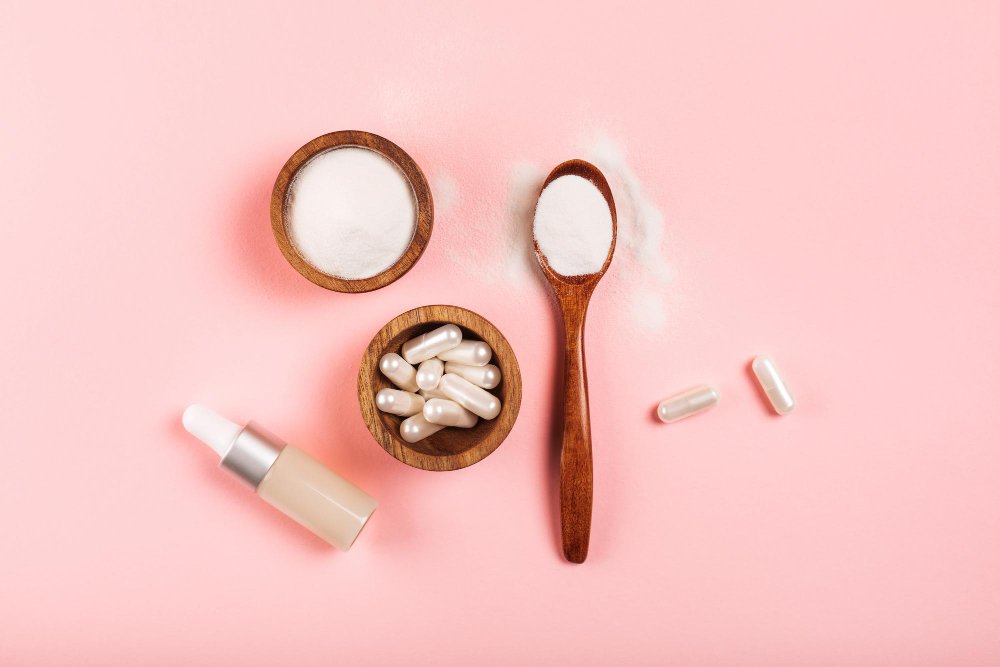Elderflower is the flower of the elderberry plant, known scientifically as Sambucus nigra. It has been used in traditional medicine for its potential health benefits, including support for immune health and skin issue management.
If you're considering incorporating elderflower into your routine, it's crucial to understand its uses, potential side effects, proper dosing, and necessary precautions.
This post will delve into the various benefits of elderflower, highlight potential adverse effects, and provide guidance on safe consumption.
Uses & Effectiveness
Elderflower may help treat respiratory infections and boost immune function. It may alleviate cold and flu symptoms like congestion and cough due to its anti-inflammatory properties, which can soothe irritated airways for easier breathing.
Additionally, elderflower may support the immune system with its antioxidant content, enhancing the body's ability to fend off infections. Common consumption methods include elderflower tea or syrup.
Elderflower may also aid in managing skin conditions, as its anti-inflammatory effects can reduce irritation and redness. Furthermore, it may serve as a natural antihistamine, potentially relieving allergy symptoms such as sneezing and itching.
Side Effects
Side Effects of Elderflower
Elderflower may cause allergic reactions, including skin rashes, itching, or respiratory issues. If you experience these symptoms, stop using elderflower immediately and consult a healthcare professional.
Gastrointestinal discomfort may also occur, with symptoms like stomach cramps, diarrhea, or nausea, particularly when consumed in large amounts. To reduce these effects, start with small doses and monitor your body's response.
Elderflower may interact with certain medications, especially diuretics and those affecting blood sugar levels. If you're on medication, consult your doctor before incorporating elderflower into your routine to prevent potential interactions.
Though rare, dizziness or headaches may occur after consuming elderflower. If you experience these symptoms, discontinue use and seek advice. Always pay attention to your body's signals and consult a healthcare professional if something feels off.
Precautions and Warnings
Before using elderflower, consult your healthcare provider, especially if you have existing health conditions or allergies.
Elderflower may trigger allergic reactions in individuals allergic to plants in the same family, like chamomile or ragweed. Pregnant or breastfeeding women should seek medical advice, as safety during these periods isn't well established.
Those with autoimmune conditions should exercise caution, as elderflower may stimulate the immune system and exacerbate symptoms.
If you're on diabetes or blood pressure medications, be aware that elderflower may interact with these medications, potentially altering their effectiveness.
If you have an upcoming surgery, discontinue elderflower use at least two weeks in advance, as it may affect blood sugar levels and complicate anesthesia.
Always prioritize your health and safety by discussing any new herbal remedies, including elderflower, with your healthcare provider.
Monitor your body's response and stop use if you experience any adverse effects.
Dosing
Finding the right dosing for elderflower is vital to maximize its benefits while minimizing potential side effects, which may include nausea or digestive upset at high doses.
For dried elderflower, a common dose may be about 4 to 6 grams per day, often brewed into tea. If using a standardized extract, follow the manufacturer's guidelines, as concentrations may vary considerably.
For elderflower syrup, starting with 1 to 2 tablespoons diluted in water once or twice a day may be advisable. It's essential to listen to your body and adjust your intake based on how you feel.
If considering elderflower for specific health benefits, like easing cold symptoms or boosting your immune system, consulting a healthcare provider may be a wise move. They can provide tailored dosing recommendations based on your individual health needs.
–
What Is the Origin of Elderflower and Its Historical Significance?
Elderflower may have roots in ancient Europe, where it has been revered for centuries.
You'll find references to elderflower in folklore and traditional medicine, often linked to protection and healing.
People may have believed the elder tree held mystical powers, symbolizing life and rebirth.
It has been used in various cultures for its fragrant blossoms, making it a staple in herbal remedies and culinary delights, showcasing its historical significance in connecting humanity with nature.
Can Elderflower Be Used in Cooking or Baking?
Yes, elderflower may be used in cooking and baking! Its delicate floral flavor may add a unique touch to various dishes.
You may try infusing it in syrups, making elderflower cordial, or incorporating it into desserts like cakes and custards.
Just remember to use it in moderation, as its potent flavor may easily overwhelm other ingredients.
Experimenting with elderflower may elevate your culinary creations and impress your friends and family!
How Can I Identify Elderflower Plants in the Wild?
To identify elderflower plants in the wild, you may look for shrubs or small trees that can grow between 5 to 12 feet tall.
They may have opposite, compound leaves with five to seven leaflets.
In late spring, you may notice clusters of small, white flowers that give off a sweet fragrance.
The berries that follow may be dark purple to black.
Make sure to check for the characteristic hollow stems, which may help confirm your identification.
Are There Any Cultural or Traditional Uses of Elderflower?
Yes, elderflower has a rich history in various cultures and may be used in traditional remedies and culinary dishes.
You may find it in beverages like cordial or wine, especially in Europe.
In folklore, it's believed to offer protection against evil spirits.
Many people may also use elderflower in rituals for health and wellness.
What Is the Flavor Profile of Elderflower and Its Culinary Applications?
Elderflower has a delicate, floral flavor with hints of sweetness and a touch of earthiness.
It may be used in various culinary applications, such as syrups, cordials, and desserts.
Elderflower may pair beautifully with fruit, especially citrus and berries, enhancing their flavors.
In savory dishes, it may add a unique twist, complementing meats and salads.
You may also enjoy it in cocktails, where its lightness may bring a revitalizing quality to your drinks.





